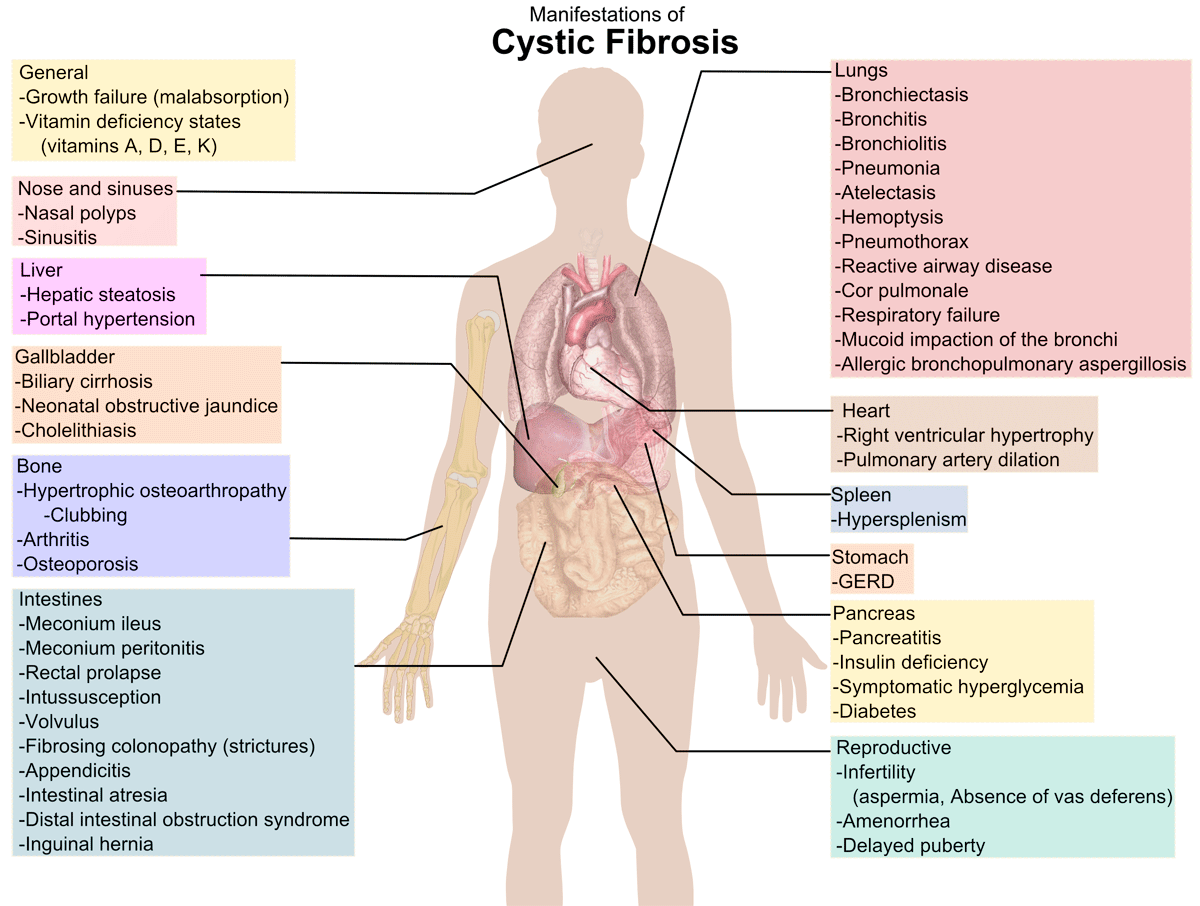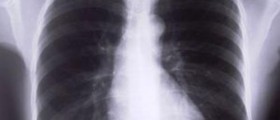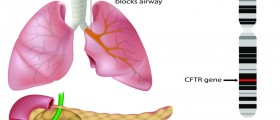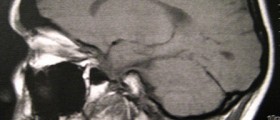
Causes of chronic cystic fibrosis
Cystic fibrosis is caused by mutations in the gene, which is responsible for protein cystic fibrosis transmembrane conductance regulator. This important protein regulates production of sweat, digestive juices, and mucus. Normally, people have two operating copies of this gene, and only one is needed to prevent a development of chronic cystic fibrosis. However, persons with chronic cystic fibrosis have malfunctioned gene, and the condition is passed on from one generation to another by autosomal recessive pattern of inheritance. These traits are transmitted to both males and females, and both of the sexes can be carriers. Patients usually have parents and offspring who are unaffected but still carry the faulty gene.
Epidemiology
This condition is most common among Caucasians. It is estimated that one in every 25 Europeans carries one forms of a gene responsible for cystic fibrosis. In the United States, about 30,000 individuals live with cystic fibrosis. However, this disease can be relatively easily prevented by genetic testing or using a sweat test in early childhood.
Signs and symptoms of cystic fibrosis
First symptoms of chronic cystic fibrosis typically appear in infancy and during childhood. First symptoms usually include bowel obstruction. In adults, the most frequent symptoms for cystic fibrosis include salty tasting skin, very poor growth and problems with gaining weight, despite a normal nutrition.
People affected with this condition often have recurrent chest infections and difficulty breathing. Their saliva is very thick, forming sticky mucus. In some rare cases, people may even have coagulation disorder, which is a group of conditions in which there is an increased tendency for excessive blood clotting. Recurrent chest infections typically arouse from logging of the airways due to mucus build-up. Gastrointestinal symptoms occur as a result of scaring of the pancreas, which is responsible for providing digestive enzymes to break down the food. At least 97% of men with cystic fibrosis are infertile.
- medlineplus.gov/ency/article/000107.htm
- www.cdc.gov/scienceambassador/documents/cystic-fibrosis-fact-sheet.pdf
- Photo courtesy of Maen K Abu Househ by Wikimedia Commons: commons.wikimedia.org/wiki/File:Cystic_fibrosis_manifestations.png

















Your thoughts on this
Loading...